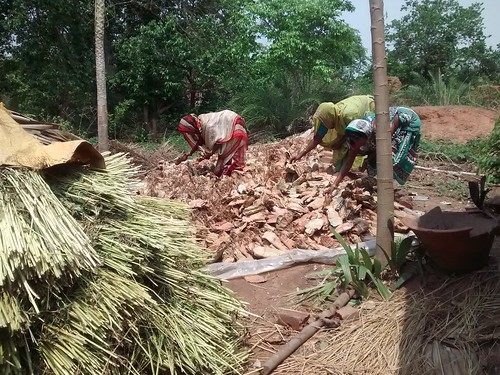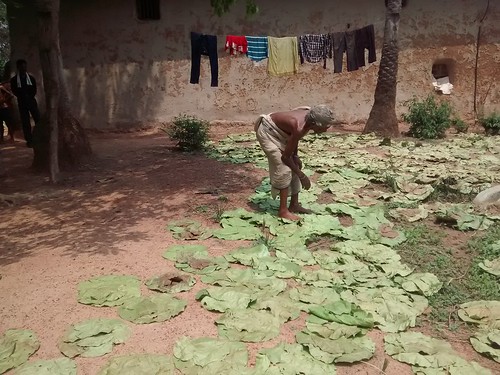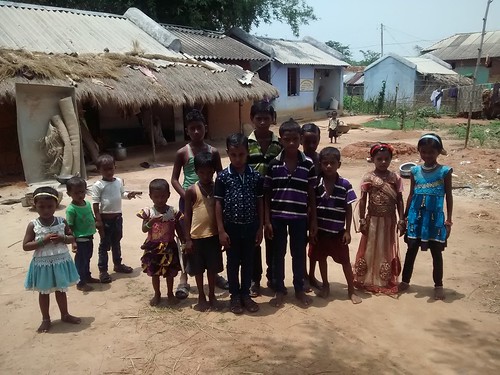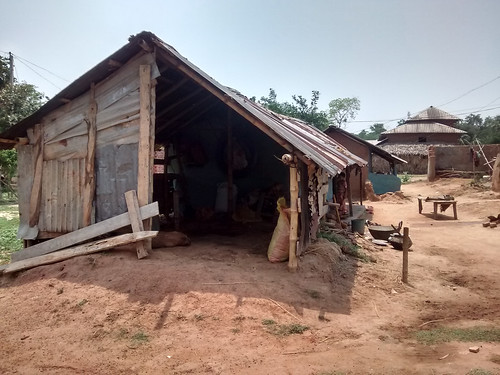By Raqib Hameed Naik and Zaidul Haque, TwoCircles.net
Bankura (West Bengal): The upcoming period of Ramadan is likely to test even the most well off people as they fast during the summers, but for Manowara Bibi and her husband Jumman, the stakes are much higher. Bibi, 30, and Jumman, 45, will continue to work in the scorching heat in a nearby forest, collecting Shawl leafs and woods to sustain themselves, despite fasting for the whole month. The couple and their two children live in Telijant, a Muslim dominated village in Bankura District of West Bengal and the fate of almost all families in this village is no different.
 >
>The family of four, which includes two sons—Muskur, 18 and Amiruddin, 16—toil the entire day in the forests and if they are lucky, a day’s work can fetch them barely enough money to buy four meals. “We earn living by collecting Shawl leafs, falling wood and branches in the forest which barely fetches us Rs 80. Sometimes, we dry the leaves and sell after stitching them with Coconut leaf stick. This is our only way to earn money,” said Bibi.
Despite living in abject poverty, both Juman and Bibi along with their two children have ensured that they fast for the whole Ramadan in the back drop of their continuing struggle for food.
Telijant is a Muslim dominated village on the border of a forest area in Bankura District, 238 Kms from Kolkata in West Bengal. The district, ranked among lowest Muslim percentage districts in West Bengal, has 8.08% of Muslims and Telijant is one of the Muslim dominated villages in the district with 45 Muslim families of 150 persons, majority of them working in treacherous forest to sustain themselves. It is also the one thing that ties all the families together.

From 10 year olds to 70 year old men/women, every one works in the forest so as to earn and buy food, to make a living.
The poverty is also visible by the fact that families can’t support educating their children as they can’t afford to buy books. As a result, most of the children to drop out in between class V to VIII and turn to collecting forest produce in order to help their families.
During Ramadan, everyone in village observes fast, but the real test lies with the first rays of sun. All of them have to move to a nearby forest, work all day under the treacherous heat, without a drop of water and food.
Despite putting such effort and going on an empty stomach all day, there is no guarantee if the amount they will get after selling their collected wood and shawl leaves will buy food for Iftar.
Out of 45 Muslim families living in the village, 40 live below poverty line and to collect subsidized ration, which isn’t sufficient at times, they have to travel 5 Km on foot to Shaltora, another village in the District.

“If we would have food for whole Ramdan, then none of us will like to work in forest because it’s too painful to work during the holy month. Everybody will like to stay in home during the whole month, spending as much time they can to offer prayers,” said septuagenarian, Ramizuddin Sader, who also collects leaves from the forest to sustain himself.
The families, which live in small mud house thanks to a central government housing scheme called the Gitanjali project, cannot even think of buying dates to break their fasts. So, they have replaced it with a small piece of ginger, chickpea or water.
Last year, seeing the miserable condition of villagers during Ramadan, a reporter carried the news in local vernacular daily, which prompted a generous person to came forward and help the villagers by distributing food grains among the villagers in last week of Ramadan.

This year too they are anticipating help, the help, which will let them fast without worrying for work in the holy month of Ramadan and it seems their prayers have been answered.
Indian Muslim Relief and Charities (IMRC), a US based charity organization, has conducted a survey of Telijant village and the village has been finalized to be covered under its ‘Ramadan Feeding Program’ by providing them food in grains package, which includes Rice, wheat, Potato and other essentials for the whole month. The distributing is scheduled to be started in coming week and the development has brought cheers among villagers.
“This is a big relief for me, my husband and my children. Now we can observe Ramadan at home without worrying for food,’’ adds Bibi.

